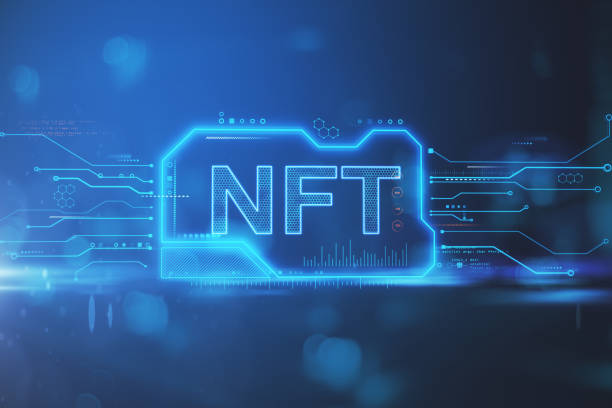Due to the pandemic’s meteoric rise in prominence, most traders are unsure of how to purchase NFTs. In response to the market fluctuations of cryptos as well as other crypto products, creative professionals, enthusiasts, and investors had already been attracted to the trend.
The verdict is yet to be determined if this represents the start of a brand-new long payback commodity category or if it is another untenable boom that is about to burst. However, NFTs actually offer advantages in the commercial sector and offer possibilities for creators.
You may not be familiar with NFTs, how and where to make investments in NFTs, or even if you ought to. The information you should learn is as follows.
NFTs’ Operation
NFTs are utilized to denote possession over or any permission to utilize a special resource, often a visual image like a work of artwork, a hunk of song, or an element of gameplay.
The same electronic database technological platform that powers Bitcoins and various cryptos, the blockchain, is used to create as well as administer these assets. NFTs have often been built on the Ethereum platform, however, most NFTs also employ alternative blockchain applications including Solana or Polkadot.
Consider such a digitized token as a kind of online claim or document that you may use to demonstrate your ownership of a tangible item like property investment. These were created as a type of electronic evidence of possession of artwork and online content. NFTs also have the potential to ensure possession of certain tangible resources, like real estate, valuables, and tangible pieces of artwork. Until further stated, we will speak to NFTs as largely reflecting digital resources.
However, there is one thing to be aware of: many initiatives offer NFTs without really possessing the artistic or acquisition entitlement of the electronic item itself. Similar to any transaction, do your homework so you understand exactly what you’re getting. NFT markets include arrangements, together with a permit, that are applicable to NFTs bought on their website. These conditions differ from industry to industry, and certain NFTs possess unique, tailored licensing rights.
NFTs that are “fake” have caused certain issues, like any other tech field. It’s indeed crucial to look into the track record of the initial NFT vendor. Regardless of whether the dealer is honest, your transaction doesn’t always perform as you had hoped. As well as the volatility of NFT transactions has been fairly high.

Purchase Of NFTs
A specifically designed NFT platform, similar to Amazon as well as Etsy but for crypto assets exclusively, is where NFTs are purchased as well as traded. Similar to the trading method for purchasing and trading crypto assets and equities, such markets could be utilized to purchase an NFT at a given rate or act as digital bidding. As a result, the price of NFTs posted for auction fluctuates according to desire. The value increases in direct proportion to demand.
One significant distinction among NFTs, shares, as well as cryptocurrencies is that equities and cryptocurrencies are exchangeable, i.e., one unit is identical to the other. Each Amazon unit is equivalent to some other, just as every Bitcoin unit is equivalent to that other. Because NFTs seem to be non-fungible, the tokens you purchase symbolize a special good that cannot be easily replaced.
You must create and maintain a cryptocurrency wallet over an NFT exchange before you can make an offer on such virtual property tokens. The virtual currencies required to buy an NFT are kept in a cryptocurrency wallet on exchanges like Quantum AI or Coinbase, similar to a virtual account on an e-commerce marketplace. The cryptocurrency required to purchase a specific NFT has to be added to an account. An NFT created on the Ethereum network, for instance, could need to be purchased using Ether coins.
Many different markets allow for NFT purchasing. Prominent NFT markets are OpenSea, Foundation, as well as SuperRare. There are additional specialized markets for certain commodities.
Selling NFTs
Normally, when you purchase an NFT, you retain total ownership over the virtual asset. You have three options: retain it as a collectible, show it to people, or put it up for sale. For NFT sales, marketplaces levy a fee. These charges, sometimes referred to as “gas fees,” may vary based on the entire system the NFT uses because the blockchain activity necessary to authenticate the NFT uses energy.
You must publish your virtual commodity to the platform of your preference in order to trade it, assuming the platform accepts the technology the NFT was created on.
To Sum Up
The platform would check the asset after uploading. The platform would then take care of the NFT transmission from the vendor to the purchaser when the item has been traded. It would then as well transmit cryptocurrency finances to your account, minus service charges as well as other associated blockchain processing costs.
